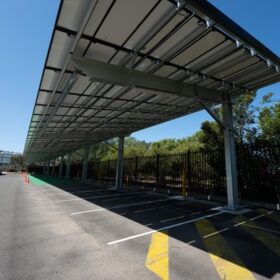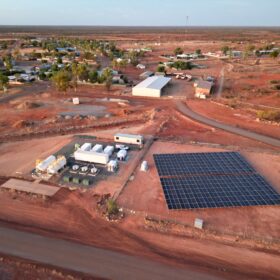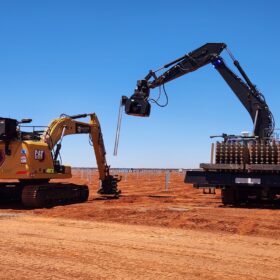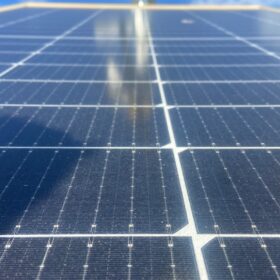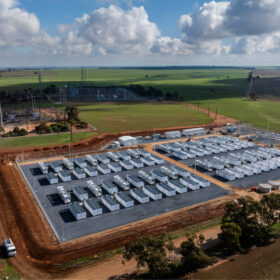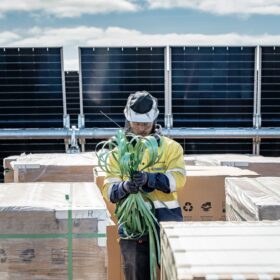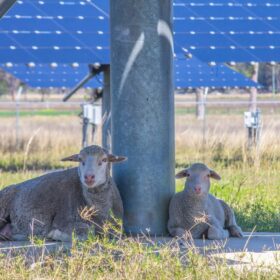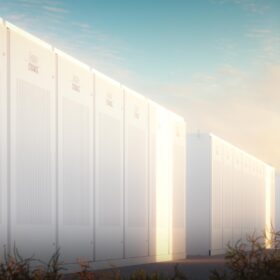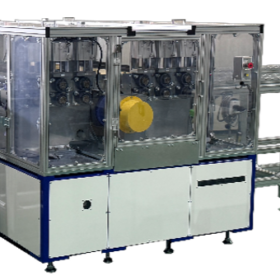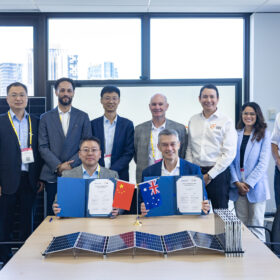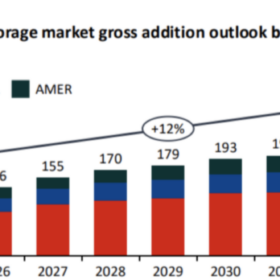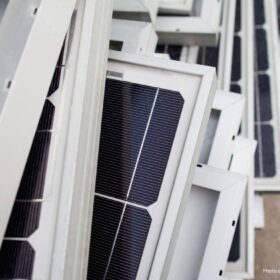S-Rack installs solar carport to power NSW council electric vehicle chargers
NSW-based solar racking business S-Rack has engineered and installed advanced racking for an 83 kW Sydney council carport solar system to support the organisation’s energy generation and electric vehicle charger network.
Pacific Energy and Horizon Power PPA signed for remote hybrid system
Pacific Energy has signed a 20-year power purchase agreement with Horizon Power to supply, from 2027, up to 60% renewable energy to the town of Leonora in Western Australia’s goldfields.
ARENA backs Fortescue technology trial at a Pilbara solar innovation hub
The Australian Renewable Energy Agency is backing mining giant Fortescue with $45 million in funding, to trial new technologies that include methods to accelerate large-scale solar deployment and next generation solar construction techniques, at a Pilbara solar innovation hub.
Queensland solar and battery project gets federal approval in 19 days
The federal government has fast-tracked in 19 days environmental approval to Samsung C&T Renewable Energy Australia for its Queensland-based Dunmore solar and battery energy storage project.
HDRE and Zen Energy enter 20-year PPA for Templers battery project
HD Renewable Energy and Zen Energy have entered into a 20-year power purchase agreement for the 111 MW / 330 MWh Templers Battery Project in South Australia, which is scheduled to commence commercial operations by the end of 2025.
Apple’s 1 million MWh per year target boosted by PPA with European Energy
European Energy has signed a power purchase agreement with United States technology company Apple for electricity supply from the 108 MWdc Lancaster solar park in Victoria, putting Apple on track to achieve 1 million MWh per year generation in Australia.
US study outlines gains and risks in agrivoltaic solar development
A new National Renewable Energy Laboratory (NREL) report says Massachusetts’ solar-on-farmland policy framework offers lessons for developers navigating both opportunity and regulatory complexity.
Utility batteries draw short straw in Solar Sharer scheme: Rystad analysis
Rystad Energy has released analysis of the federal government’s Solar Sharer scheme saying forecast increased demand from utility and household batteries and a slowdown of rooftop solar could boost utility renewables and coal via increased daytime demand, but impact gas and utility batteries.
Japanese companies partner to establish solar glass recycling scheme
Two Japanese companies have announced a partnership to advance the recycling of solar panel cover glass for application in architectural flat glass production.
5B signs module supply agreement for 100MW+ project in Western Australia
Australian solar innovator 5B Maverick has signed a landmark module supply agreement with JA Solary for over 100 MW of JA Solar’s DeepBlue 4.0 Pro modules for a large-scale solar project in Western Australia.
